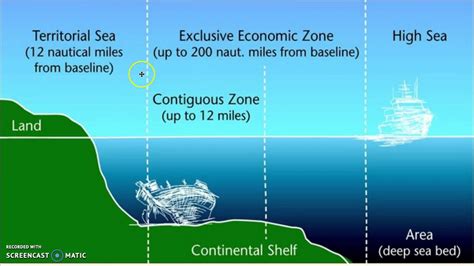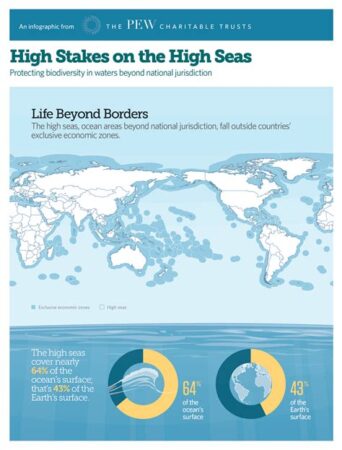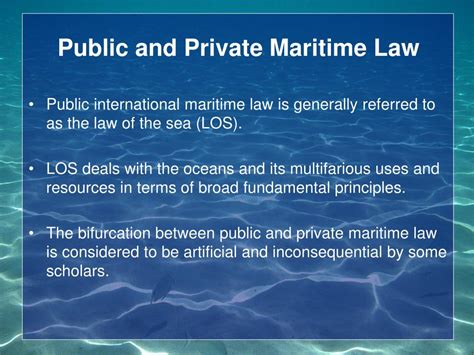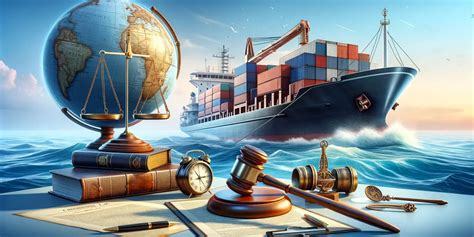
- History of Maritime Law in Nigeria: A Comprehensive Guide
- Origins of Maritime Law in Nigeria
- Development of Post-Independence Maritime Law
- Key Aspects of Nigerian Maritime Law
- Table: Key Legislation in Nigerian Maritime Law
- Conclusion
-
FAQ about History of Maritime Law in Nigeria
- 1. When did maritime law first develop in Nigeria?
- 2. What were the main sources of maritime law in pre-colonial Nigeria?
- 3. How did the British colonization influence maritime law in Nigeria?
- 4. What was the significance of the Nigerian Maritime Zones Act of 1998?
- 5. How is maritime law enforced in Nigeria?
- 6. What are the key principles of maritime law in Nigeria?
- 7. How has maritime law evolved in recent times?
- 8. What are the challenges facing maritime law in Nigeria?
- 9. What is the role of the Nigerian Shippers’ Council?
- 10. How does maritime law contribute to Nigeria’s economy?
History of Maritime Law in Nigeria: A Comprehensive Guide
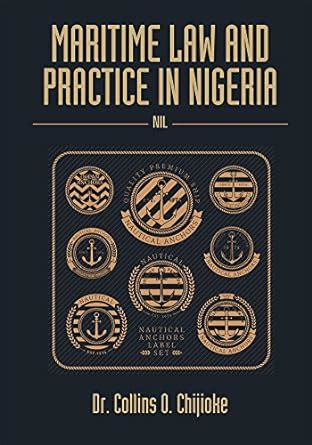
Introduction
Greetings, readers! Embark on a fascinating journey into the maritime legal landscape of Nigeria. From ancient traditions to modern statutes, we’ll delve into the evolution of laws governing the country’s vast maritime space.
Maritime law, as a body of regulations, ensures the smooth operation and safety of maritime activities. Nigeria, with its extensive coastline and burgeoning maritime industry, has developed a robust legal framework over the years to regulate matters such as navigation, shipping, marine pollution, and offshore exploration.
Origins of Maritime Law in Nigeria
Pre-Colonial Era
The roots of Nigeria’s maritime law can be traced back to indigenous customs and practices. Coastal communities established regulations for fishing, trade, and navigation within their territories. These customs, often enforced through traditional authorities, served as the foundation for the development of formal maritime law in the colonial era.
Colonial Influence
With the arrival of European colonizers in the 19th century, Nigeria adopted elements of British maritime law. The British Admiralty Court, established in 1863, exercised jurisdiction over maritime matters in the colony. This court applied principles of English common law, supplemented by local customs and regulations.
Development of Post-Independence Maritime Law
First Republic and Indigenous Development
After Nigeria gained independence in 1960, the country embarked on a journey to develop its own body of maritime law. In 1962, the Merchant Shipping Act was enacted, codifying many aspects of British maritime law. The Merchant Shipping (Civil Liability) Act, passed in 1964, addressed issues related to carriage of goods and passenger liability.
Military Regimes and Expanded Maritime Regulations
During the military regimes in the 1970s and 1980s, the focus shifted towards expanding and strengthening maritime law in response to the growing importance of the oil and gas industry. The Exclusive Economic Zone Act of 1978 established Nigeria’s exclusive economic zone, extending the country’s jurisdiction over maritime resources.
Democratization and Contemporary Maritime Law
The return to democratic rule in 1999 ushered in a period of continued development and modernization of maritime law. The Maritime Safety and Sea Protection Bill, passed in 2004, consolidated existing maritime statutes and introduced new measures to enhance safety and security in Nigerian waters.
Key Aspects of Nigerian Maritime Law
Navigation and Ship Registration
Nigerian maritime law regulates the navigation of vessels within the country’s territorial waters and exclusive economic zone. The Merchant Shipping Act establishes rules for ship registration, safety standards, and certification of seafarers.
Marine Pollution and Environmental Protection
Protecting the marine environment is a crucial aspect of Nigerian maritime law. The Merchant Shipping (Oil Pollution) Act, enacted in 1990, imposes strict liability on ships responsible for causing oil spills or other pollution incidents. Additionally, the Environmental Impact Assessment Act of 1992 requires that all offshore projects undergo environmental assessments.
Offshore Exploration and Production
The development of Nigeria’s offshore oil and gas resources has given rise to a complex legal regime governing exploration and production activities. The Petroleum Act of 1969, as amended, sets out the legal framework for granting licenses, regulating operations, and ensuring environmental protection.
Table: Key Legislation in Nigerian Maritime Law
| Legislation | Year | Focus |
|---|---|---|
| Merchant Shipping Act | 1962 | Ship registration, navigation, safety standards |
| Merchant Shipping (Civil Liability) Act | 1964 | Carriage of goods, passenger liability |
| Exclusive Economic Zone Act | 1978 | Establishment of exclusive economic zone, jurisdiction over maritime resources |
| Maritime Safety and Sea Protection Bill | 2004 | Consolidation of maritime statutes, safety measures |
| Merchant Shipping (Oil Pollution) Act | 1990 | Liability for oil spills, marine pollution |
| Environmental Impact Assessment Act | 1992 | Environmental assessment of offshore projects |
| Petroleum Act | 1969 (amended) | Regulation of offshore exploration and production |
Conclusion
The history of maritime law in Nigeria showcases the country’s commitment to ensuring a safe, prosperous, and environmentally sustainable maritime domain. From ancient customs to modern legislation, the evolution of these laws has kept pace with the changing needs of the nation.
Readers, we invite you to explore our other articles for further insights into the vibrant legal landscape of Nigeria.
FAQ about History of Maritime Law in Nigeria
1. When did maritime law first develop in Nigeria?
Maritime law has its roots in ancient times, with Nigeria’s earliest maritime regulations dating back to the pre-colonial era.
2. What were the main sources of maritime law in pre-colonial Nigeria?
Customary laws, local practices, and international treaties formed the primary sources of maritime law.
3. How did the British colonization influence maritime law in Nigeria?
British rule introduced the English common law system and various maritime statutes, such as the Admiralty Courts Ordinance of 1873.
4. What was the significance of the Nigerian Maritime Zones Act of 1998?
This act established the Exclusive Economic Zone (EEZ) and Continental Shelf, expanding Nigeria’s maritime jurisdiction.
5. How is maritime law enforced in Nigeria?
The Federal High Court has exclusive jurisdiction over admiralty matters, and the Nigerian Maritime Administration and Safety Agency (NIMASA) is the lead government agency responsible for maritime law enforcement.
6. What are the key principles of maritime law in Nigeria?
Principles include the freedom of navigation, the law of the flag, the law of the port, and the principle of general average.
7. How has maritime law evolved in recent times?
International maritime conventions, such as the United Nations Convention on the Law of the Sea (UNCLOS), have significantly shaped maritime law in Nigeria.
8. What are the challenges facing maritime law in Nigeria?
Challenges include piracy, oil theft, vessel pollution, and marine pollution.
9. What is the role of the Nigerian Shippers’ Council?
The council regulates and protects the interests of shippers, ensuring fair practices in maritime transportation.
10. How does maritime law contribute to Nigeria’s economy?
Maritime law regulates activities that support trade, shipping, and offshore energy exploration, contributing to economic growth and development.

